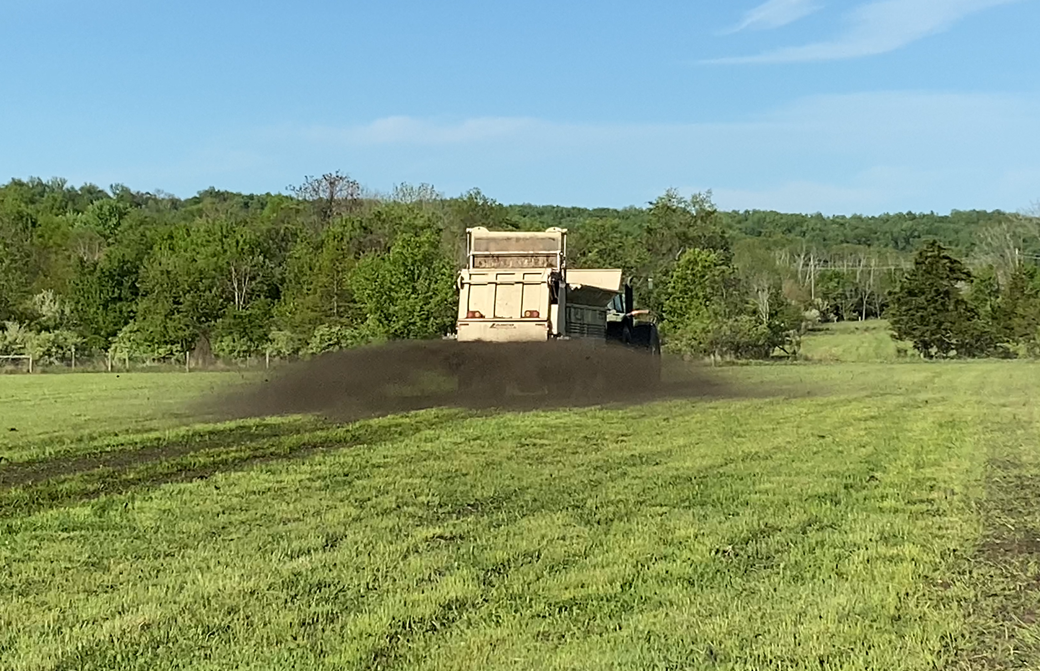| D&R Greenway Land Trust and leaders from Soil Carbon Partners (SCP) announced the completion of the first phase of their carbon-sequestration process at the land trust’s St. Michaels Farm Preserve.
Growth of lush forage grasses exceeds expectations in fields fertilized with a special mix of organic materials and minerals, according to information provided by D&R. Despite significant spring rains, followed by a hot, dry spell mandating irrigation, just two weeks after planting, production was twice that of grasses grown in control areas, and has been increasing since the first test results, according to the statement. Three independent researchers, including from Princeton University and the University of Vermont, are evaluating results in the amended fields compared with control areas not treated with SCP’s natural, organic soil amendments.
In May, SCP’s special mix of soil fertilizer, an organic blend of minerals and microbes, was spread on 50 acres of fields on D&R Greenway’s St. Michaels Farm Preserve in Hopewell. The first phase of the project, which included deliveries and mixing of materials, and spreading organic elements on the fields, is now complete. The goal is to increase productivity exponentially to expand the ability of the plants to sequester and store carbon from the atmosphere. If successful, the science will demonstrate how agriculture can be managed to diminish catastrophic climate change, according to the statement. |
SCP will bring a small herd of cattle to selected fields this summer. This experiment replicates grasses and processes of the healthy ecosystem that nourished long-ago bison on Western prairies. Cattle nourished on SCP’s fertilized forage grasses, fed by nutrient and mineral-rich soil, are expected to produce significantly less methane than is typical today, according to the statement. The impact of St. Michaels Farm cattle upon the climate will be tested. Daniel Rubinstein, Ph.D., of Princeton University’s Department of Ecology and Evolutionary Biology, will focus his research on the impact of this system on the animals. His expertise is founded on an individual animal’s foraging, mating and social behavior. At St. Michaels Farm, Rubenstein will measure methane emissions, which are expected to be reduced as the cattle consume nutrient-dense forage growth from SCP-enriched pastures, according to the statement.
The trails at St. Michaels Farm Preserve remain open, and visitors are encouraged to enjoy the views. D&R Greenway and SCP ask that later this summer when the cattle arrive, walkers maintain a “cattle distance” of at least 6 feet from any fenced fields where cattle are grazing. Learn more at drgreenway.org
|

